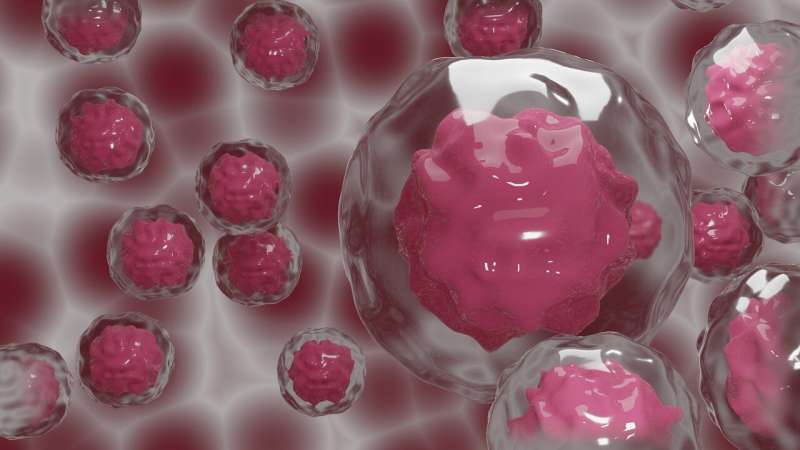
A hallmark of cancer is its ability to evade the immune system. It is why researchers are focused on finding new strategies and targets to jumpstart the immune system so it can mount a response against tumors. One such target is the inhibitory receptor T-cell immunoglobulin and mucin domain 3 (TIM-3), a protein that is overexpressed in many different types of cancer and is associated with poor patient outcomes. It is known to block the activity of immune cells, such as dendritic cells, but how remains unclear. In a new article published in the journal Immunity, Moffitt Cancer Center researchers show that TIM-3 inhibits the STING signaling pathway in dendritic cells, thereby blocking their ability to elicit an immune response.
Dysregulation of the immune system is an important contributor to cancer development. Many new therapies target T cells to restimulate them to attack cancer cells. However, dysregulation of dendritic cells and other cells of the immune system can also contribute to the development of cancer. Dendritic cells are specialized cells that capture, process and display antigens, which are then recognized by T cells that become activated. Cancer patients often have dysregulated or lower dendritic cells levels, suggesting that approaches to augment their activity may be effective against cancer.
Previously, Moffitt researchers demonstrated that antibodies that block TIM-3 enhanced the activity of chemotherapy in mouse models of breast cancer, even though T cells in this model had very low levels of TIM-3. They also found that the effect of TIM-3 blocking antibodies was dependent on the presence of dendritic cells.
To further understand the role of TIM-3 in dendritic cells, the Moffitt team performed preclinical laboratory experiments in cell lines and mouse models. They discovered that TIM-3 inhibits activation of the cGAS-STING pathway and downstream immune cell activation. The cGAS-STING pathway is an important mediator of immune cell function and activators of STING can stimulate anti-tumor activity of immune cells. They found that TIM-3 was able to block activation of the STING pathway in dendritic cells by inhibiting the internalization of double-stranded DNA derived from tumor cell debris in the extracellular space. The researchers also confirmed that chemotherapy plus TIM-3 blockade effectively prevented tumor growth in mice, which was dependent on STING activity.
Source: Read Full Article